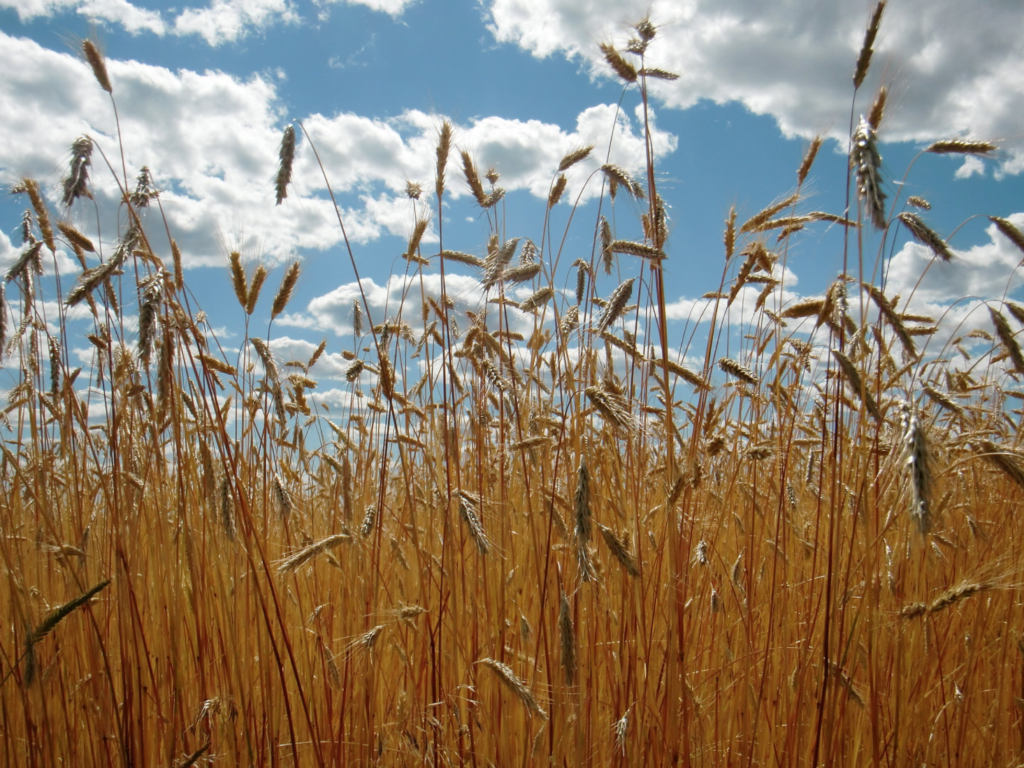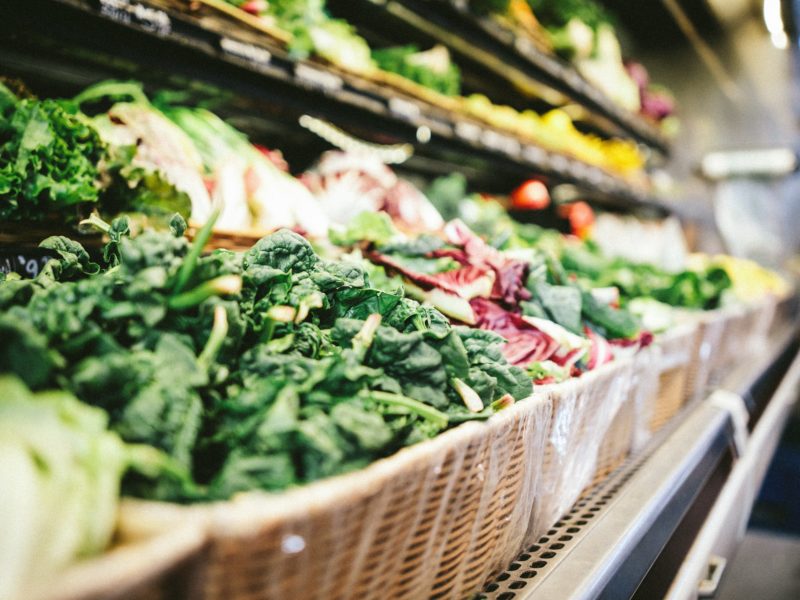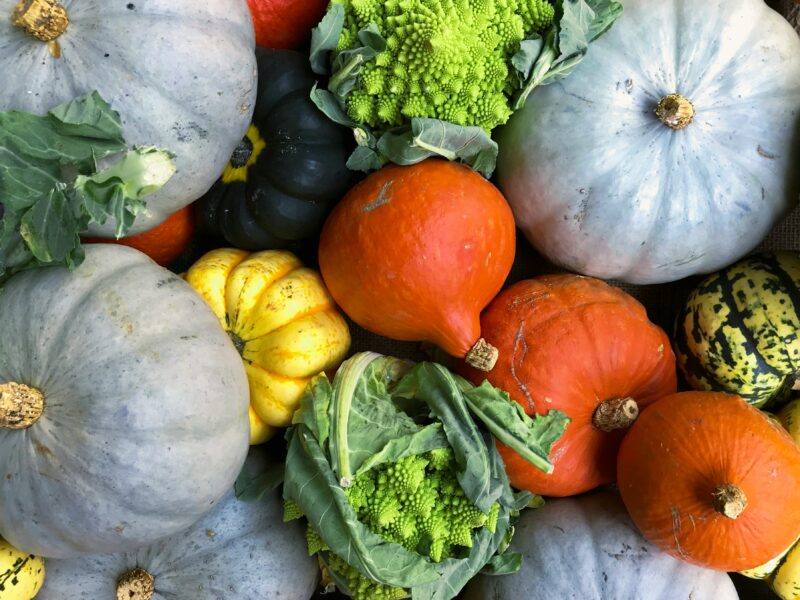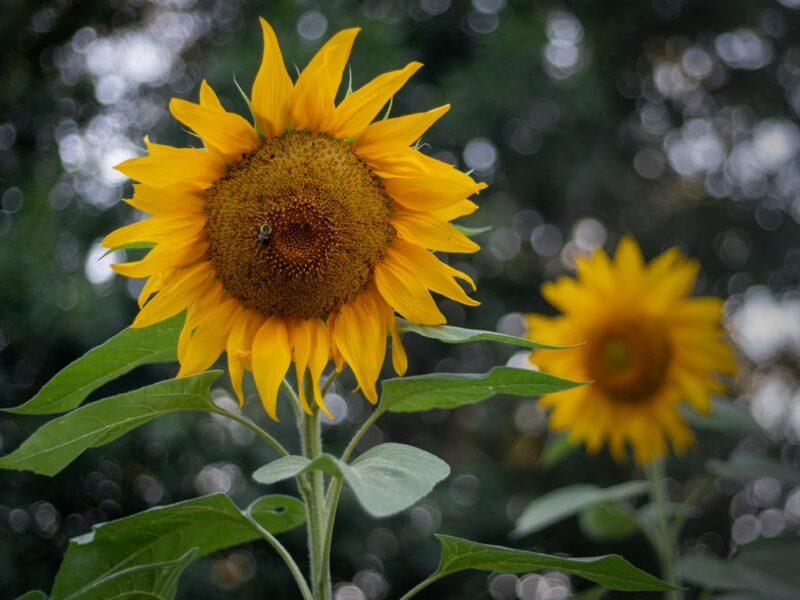Only Organic has partnered with The Organic Center in interviewing organic farmers across the U.S. to highlight the wonderful work they do. Today we are highlighting Vilicus Farms.
Farmer Names: Doug Crabtree and Anna Jones-Crabtree
Farm: Vilicus Farms
Location: Havre, MT

Doug often expresses that he didn’t choose to farm-he was born a farmer. Growing up on his family’s farm in Ohio, Doug got to experience first hand the joys and sorrows of farming-even through the 1980’s Farm Crisis where ultimately his family farm was lost to the economic upheaval. Ever since those days, Doug searched for a way to return to the land. Anna enjoyed an upbringing focused on sustainability and the natural world as her family, while not actively full-time farmers, placed an important emphasis on raising their own food at her childhood homes in Colorado and Washington. Doug and Anna met in 1989 at Purdue University while they were both pursuing degrees there- Doug in agriculture and Anna in engineering. Throughout their professional careers in both agriculture and sustainable engineering, Doug and Anna sought a way to return to the land and begin farming once again. They finally were able to find land in northern Hill County, MT that fit their needs, the land was affordable, and they figured they had a market opportunity in organic grains and pulses. In 2009, Vilicus Farms was founded, and Doug, Anna, and their three Jack Russell terriers were finally able to make their farm dream a reality as they entered their 40’s. Organic farming was the only farming Doug and Anna were interested in-after seeing farm after farm fails in the economic crisis of the ’80s, and after learning the numerous ways that so-called “conventional” farming was harming both the environment, the eater, and the farmer themselves, Doug and Anna were committed to changing the way America farmed-one acre at a time.
How long have you been farming organically?
Since the founding of Vilicus Farms, Doug and Anna have committed to organic production. Organic farming is not only a healthy and sustainable system but also is a promise to the eater and to the world we all inhabit to work with Mother Nature and heal and protect the natural resources that we all depend upon. Starting with 1,280 acres in 2009, the farm has grown to its present-day 9,600 acres through steady expansion and converting of conventional acres and CRP land to organic production and conservation efforts-over 25% of the farms land base is in permanent pollinator-friendly habitat.
What variety of crops do you grow?
Vilicus Farms produces a variety of heirloom grains, pulses, and broadleaf crops, as well as a large amount of cover crops. This year the farm has expanded into planting forage and cover crop mixes to support the integration of livestock into the cropping system-both to build soil health, manage weeds, and support the launching of new farm enterprises that long term employees and apprentices will grow into managing. Doug and Anna are proud to say that their most important crop is new farmers, as their Apprenticeship program has been an important focus throughout their farm journey. Growing wheat, peas, lentils, and beef is important, but growing the young agrarians who will steward the land long into the future is the most important work that Vilicus Farms engages in.
How has the Covid-19 pandemic impacted your farm?
The Covid-19 Pandemic has impacted many parts of the farm community, but Vilicus Farms is especially fortunate to be located in a very remote and rural area. The population density of Hill County is just 5 people per square mile, and where the farm is located it is much less than even that. However, the network around the farm has experienced much stress, with the economic uncertainties leaking into farm management. Perhaps the biggest challenge that Covid-19 introduced was a labor shortage. This year the farm was looking forward to welcoming their last year’s apprentice from France back onto the farm team for the second season of learning organic farming in the northern plains. However, crew member Aubin was delayed from coming to the farm, as well as other short term employees that were meant to join the team for seeding season. This year, the farm is barely able to supply the labor needed to seed the thousands of acres that we manage. It has also been a concern in everyday management-we need parts and supplies, some that we can only obtain from major population centers, but every time a crew member travels to a population center we put the entire farm crew-and the 2020 seeding season- in jeopardy of derailment due to possible Covid-19 exposure.
What is the biggest challenge you have faced as an organic farmer, or what do you think will be the biggest challenge in the future?
The biggest challenge that Vilicus Farms faces, and perhaps the entire food sector faces, is the difficulty farms have in establishing truly cooperative relationships with buyers. Time and time again a brand or buyer will tout their commitment to “partnering” with farmers, and yet they will hesitate to contract on more than an annual basis, often struggle to pay on time, or in other ways behave in fashions that further de-stabilize the farmer’s ability to steward their land in a truly regenerative fashion. It is extraordinarily difficult to make investments in long term sustainability when buyers, millers, marketers, and every other link in the complex supply chain that makes up the food system refuse to share the risk that every season brings to the farm. As climate variability, market instability, and social upheaval magnify the risks that every farmer shoulders year after year, it is glaringly obvious that without the consensus of support by the rest of the food chain, farm after the farm is doomed to fail.
What do you love most about being an organic farmer?
Perhaps the best part of organic farming is knowing that the way we farm makes sense. We produce healthy food, take care of the natural resources around us, and are even able to sell our products for a higher price. It may be more work, more complex management, and an uphill battle against the agricultural “norm”, but we strongly believe that our land and soil need to be managed better. Every acre we can “get off the drugs” is an acre closer to truly cherishing this amazing landscape that we are lucky to be a small part of.
What are you most optimistic about or what have you seen that gives you hope?
What gives us hope is knowing that we are not alone-from the young people who come and apprentice with us on the farm, to the outreach and support of our network of like-minded customers, suppliers and landlords/investors, we have found that there are many people who are ready to demand something different from the food system. Young people especially are interested and willing to learn everything they can about agriculture and food. Our apprenticeship and intern programs are incredibly rewarding as we get the opportunity to teach and learn from the aspiring agrarians that will lead the next generations’ efforts of land stewardship.
Do you have a story you would like to share from your farm?
Our story is an ongoing one, with many changes happening and exciting new enterprises launching. Perhaps the best takeaway so far is that it is possible to farm-and to start a farm-with the right amount of vision, dedication, and relationship building. If you aren’t afraid to dig in, get your hands dirty, and learn a thousand things “on the fly”, then you CAN farm!
What’s the one thing you wish all consumers knew about organic food and farming?
The most important thing that consumers can know about Organic farming is that it is the safest food they can buy. It is the only system that reliably traces the food from your plate to our soil, and with the Organic label, you know that the farmer you are supporting is abiding by a specific standard of production meant to protect our land and health. Every system has imperfections, and Organic is no different, but those imperfections are far outweighed by the integrity of thousands of organic producers from around the world that are working tirelessly to maintain and improve the quality of our soils, water, and food.
What advice would you give to a younger generation of farmers that may be interested in becoming organic?
To the younger generation interested in getting into production farming, our advice is to learn as much as you possibly can. Preparation is key to success in most walks of life, and farming is no different. Read all you can, research the aspects of farming that interest you, and gain experience by working for a farmer. We offer internships and apprenticeships at our farm as a way of fast-tracking the learning required to go out and start a successful farm business, and whether it is by learning from us or from another farmer it is of vital importance to get some hands-on experience. Farming is a learn-by-doing enterprise, so get out there and get your hands dirty!
Visit Vilicus Farms on Social Media
Visit The Organic Center website and social








